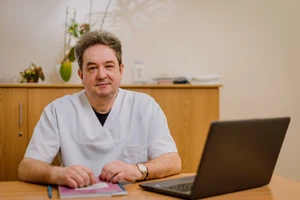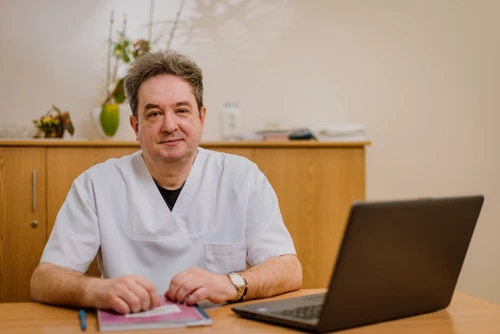
Infertility among couples has increased from 1.5% in 1990 to over 16% in 2018. The reasons? Stress, secondary infertility, hormonal imbalances (hypothyroidism), inflammation or gynecological problems, metabolic syndrome, prediabetes and diabetes, Hashimoto’s disease, predisposition to thrombophilia, inappropriate semen, emotional and compatibility problems between partners, all of these are obstacles to obtaining a much desired pregnancy. What gynecologist George Vasilescu recommends.
Infertility is defined as the lack of pregnancy after a trial period of 1 year, during which the couple has regular and unprotected sexual contacts. In addition, fertility decreases with increasing age of the expectant mother. Therefore, women between the ages of 35-40 who want to be mothers are recommended to talk to an infertility specialist after a period of 6 months of trying, and women over 40 years of age after 3 months of trials.
Infertility of ‘unknown cause’
There are cases of infertility with clearly established reasons, which are treated from a medical point of view. But, there are also cases of infertility of “unknown cause”. Thus, molecular biology studies have been extended at the level of the endometrium, as well as genetic studies aimed at the molecular structure of the male gamete.

Image 1/1:
2 dr george vasilescu 1 jpg jpeg

In parallel with these researchers there is a group of specialists who study the effects of the civilized world on the human fertile potential. “We live in a civilized world that eats chemically processed foods, inhales toxins from atmospheric pollution, exposes itself to high doses of electromagnetic radiation (telephone, laptop, TV, electric ovens). On the other hand, today’s world is exposed to a higher degree of stress and chronic fatigue than previous generations. The fertility period related to female age has also decreased in the last 30 years. More and more young women are entering menopause much earlier. This fact, combined with the

A gynecological problem? More than that!
Fertility disorders are more than gynecological problems. “In the West, the couple’s infertility problem is an interdisciplinary challenge. Specialists in nutrition, allergology, complementary medicine, collaborate with infertility specialists to create training and therapy programs suitable for each individual case, whether we are talking about trying to get pregnant naturally or through assisted human reproduction. A first category of specialists are those who try to create pregnancy preparation programs (so before planning a pregnancy or an assisted human reproduction procedure). These specialists started working hard about 10 years ago and continue their work today, with encouraging results. Thanks to them, the rate of obtaining a pregnancy, at least through assisted reproduction, has increased significantly in some countries,” states Dr. Vasilescu.
What can increase the chance of conceiving children?
In the past, a healthy diet and a folic acid supplement may have been enough. “In the last 10 years, there has been an escalation of food and atmospheric allergic pathology that affects children from a very young age: asthma, eczema, autoimmune diseases. All these appeared together with the increase in exposure to <
Washout studies (observing what happens when switching from conventional to organic food) have shown a significant decrease in body toxins (especially herbicides and pesticides contained in conventional food). Therefore, a well-established detoxification program can have a positive impact on fertility and the health of newborns.
“In many countries, the applied programs start between 3 and 6 months before planning a pregnancy (natural or through assisted human reproduction). Switching to a diet that is as organic as possible is the first step. It applies to both partners, future parents. Also, the sources of toxins are removed (cosmetics of questionable quality, body care products that contain many harmful substances, including hair dyes, home care products). With regard to nutrition, the presence of nutritional principles must be ensured, together with beneficial foods for an effective
During the preparation period, natural therapies (wellness, detox and relaxation programs), acupuncture, reflexology and specific pro-fertility massage are certified to be beneficial.
@shutterstock






































